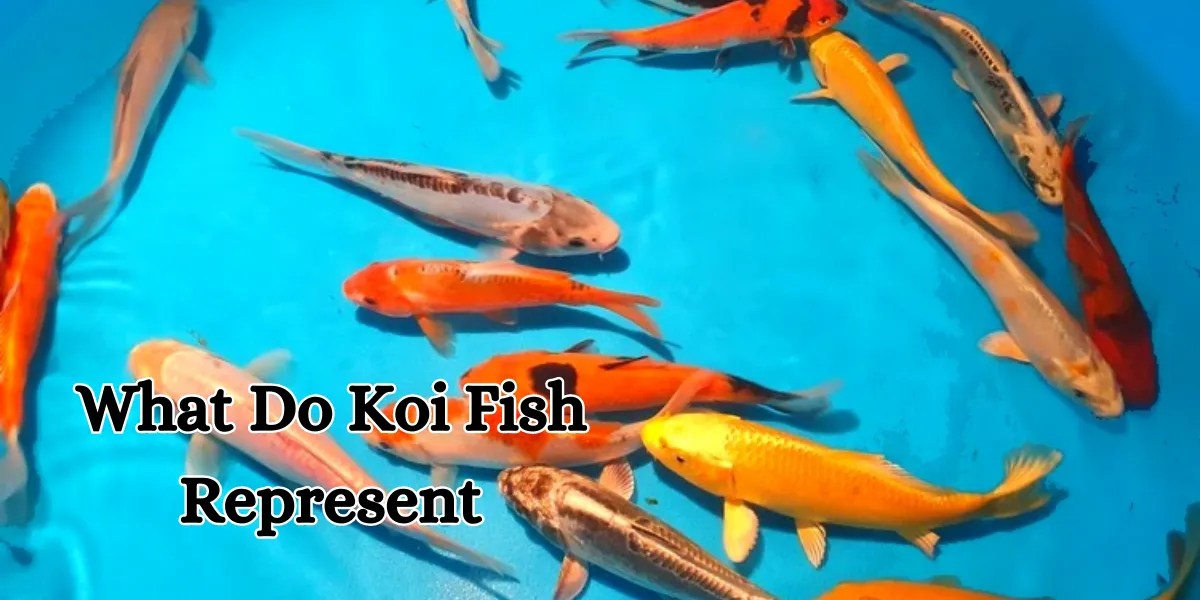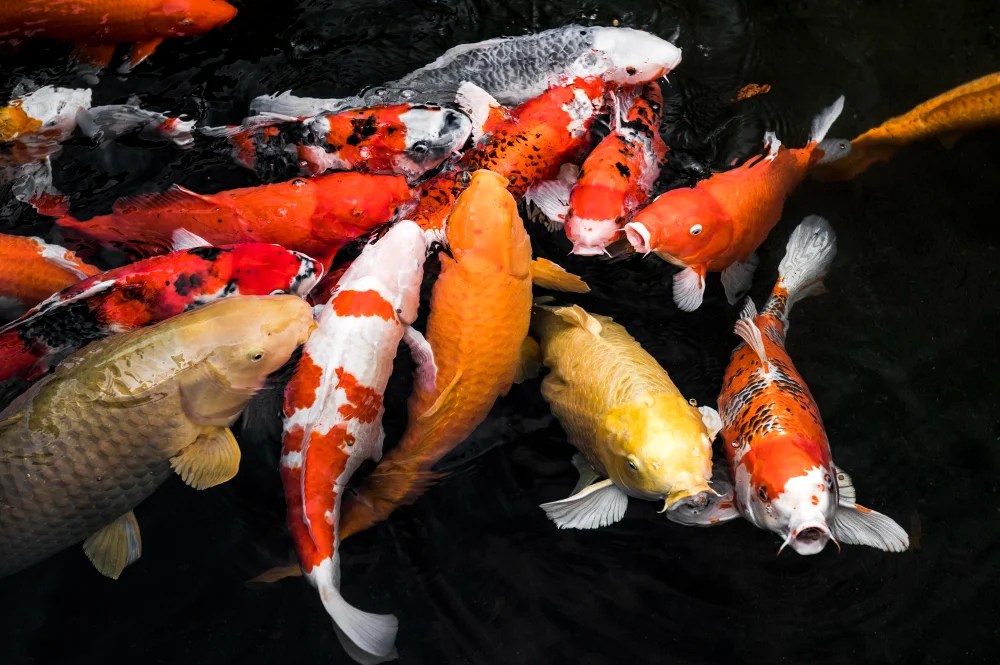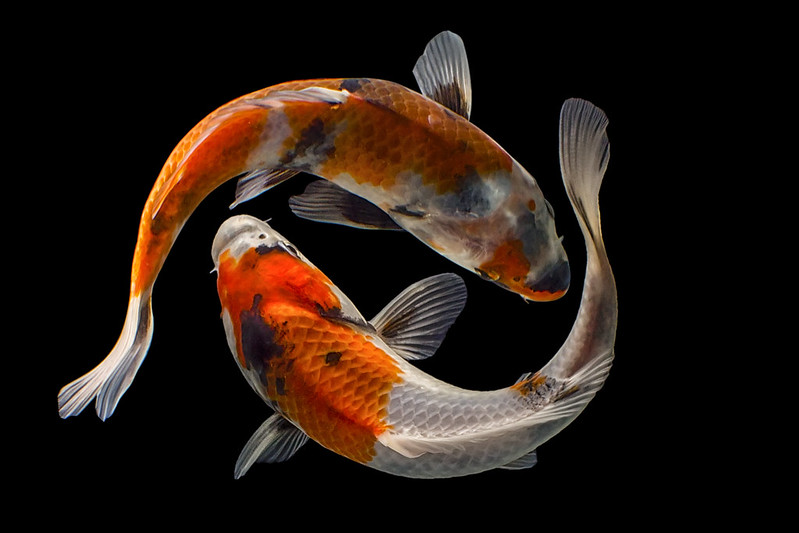What Do K Koi Fish Represent? Understanding Their Symbolism And Significance
Koi fish have fascinated people for centuries, not just for their beauty but also for the profound symbolism they carry in various cultures. As vibrant and graceful creatures, koi are often associated with many positive traits, making them a popular subject in art, literature, and even tattoos. In this article, we will delve into the meanings behind koi fish, exploring their cultural significance, symbolism, and the various interpretations across different societies.
Moreover, understanding what koi fish represent can deepen our appreciation for these magnificent creatures and the rich traditions tied to them. Whether you are an aquarist, a lover of art, or simply someone curious about cultural symbols, this exploration of koi fish symbolism is sure to captivate your interest. By the end of this article, you will gain a comprehensive understanding of what koi fish represent and how they have influenced various aspects of life.
Join us as we dive into the depths of koi fish symbolism, exploring their roles in mythology, art, and personal significance. Whether you wish to incorporate koi fish into your home decor or simply want to understand their meanings better, this article aims to provide you with valuable insights into what koi fish represent.
Table of Contents
Cultural Significance of Koi Fish
Koi fish hold a unique place in various cultures around the world, particularly in Asia. Their beauty and resilience make them symbols of strength and perseverance. In many cultures, koi fish are seen as a representation of overcoming adversity, making them a powerful symbol of hope and determination.
Some key aspects of their cultural significance include:
- Resilience: Koi fish are known for their ability to swim upstream against strong currents, symbolizing the strength to overcome obstacles.
- Longevity: Koi fish can live for many years, often exceeding 200 years, which symbolizes longevity and immortality.
- Prosperity: In many cultures, koi fish are associated with good fortune and prosperity, making them popular in homes and businesses.
Koi Fish Symbolism in Japan
In Japan, koi fish are deeply embedded in the culture and carry various meanings. They are often depicted in traditional art and are a common sight in Japanese gardens. The symbolism of koi fish in Japan can be broken down into several key themes:
- Bravery: The koi fish's ability to swim upstream is a metaphor for bravery and determination in facing challenges.
- Love: Koi fish are often associated with love and affection, particularly between partners.
- Success: In Japanese culture, koi fish are seen as symbols of success, especially in business and personal endeavors.
Koi Fish Colors and Their Meanings
The colors of koi fish also play a significant role in their symbolism. Different colors are believed to represent various traits:
- Red: Represents love and strength.
- Black: Symbolizes overcoming adversity.
- White: Represents purity and tranquility.
- Yellow: Signifies wealth and prosperity.
Koi Fish in Other Cultures
While Japan is perhaps the most renowned for its koi fish symbolism, other cultures also hold the koi fish in high regard. In Chinese culture, koi represent wealth, prosperity, and good fortune. The phrase “koi” in Chinese is a homophone for “love,” making koi fish a symbol of love as well.
In addition, koi fish are often featured in various festivals and celebrations, symbolizing joy and happiness. Their vibrant colors and graceful swimming patterns make them a beloved subject across different cultures.
Personal Meaning of Koi Fish
For many individuals, koi fish represent personal journeys and transformations. They can symbolize specific life experiences, such as:
- Growth: Just as koi fish grow and adapt, they can symbolize personal growth and development.
- Healing: The serene nature of koi fish can represent healing and tranquility.
- Legacy: For those who have kept koi fish for generations, they can symbolize family legacy and continuity.
Koi Fish in Art and Literature
Koi fish have inspired countless artists and writers throughout history. Their beauty and symbolism make them a popular subject in various forms of art:
- Paintings: Koi fish are often depicted in traditional Japanese paintings, showcasing their colors and grace.
- Tattoos: Many people choose koi fish tattoos to symbolize personal strength, resilience, and transformation.
- Literature: Koi fish have appeared in literature as symbols of perseverance and love.
Caring for Koi Fish and Their Symbolism
Caring for koi fish is not just about providing a suitable environment; it also embodies the values of responsibility and commitment. By nurturing koi fish, individuals can reflect on the following:
- Responsibility: Keeping koi fish requires dedication and care, symbolizing the importance of commitment.
- Connection: Building a relationship with koi fish can enhance one’s appreciation for nature and tranquility.
Myth and Legends Surrounding Koi Fish
Throughout history, koi fish have been surrounded by various myths and legends. One of the most famous legends is the tale of the koi fish that swam upstream to transform into a dragon. This story symbolizes the idea that with perseverance and determination, one can achieve greatness.
Such myths serve to reinforce the cultural significance of koi fish, making them a potent symbol of transformation and success.
Conclusion
In conclusion, koi fish represent a rich tapestry of meanings and symbolism across cultures. From their association with resilience, love, and prosperity, to their roles in art and personal growth, koi fish hold profound significance in our lives. Their beauty and grace continue to inspire and captivate, reminding us of the importance of strength and perseverance.
We invite you to share your thoughts on koi fish symbolism in the comments below. Have you had any personal experiences with koi fish? Feel free to share your stories or insights, and don’t forget to explore more articles on our site for further reading!
Thank you for taking the time to understand what koi fish represent. We hope this article has enhanced your appreciation for these magnificent creatures and their cultural significance.
Article Recommendations



ncG1vNJzZmilqZu8rbXAZ5qopV%2Bftq652HBmsKCRqXqlu4ykpqJllp7AqXnRnqernaOau7V6x62kpQ%3D%3D